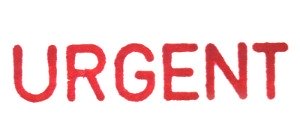|
Using Employee Time Management Software to Boost ProductivityDevelop a Time Management Matrix to Support Your Business GoalsEmployee time management software helps you improve productivity; use it with a time management matrix to build business process efficiency. The software can be particularly useful in project time management. Search This Site

Custom Search
Employee-specific software keeps track of when employees are arriving at and leaving work, how much time they spend on specific projects or assignments, planned vacations or absences, and more. For projects, software programs can track multiple projects, tasks, project team members, and provide alerts when milestone dates are reached or missed. 
If your concern is that your employees have access to the Internet and are not wholly focused on your business and their work, you can find employee time management software programs to block out internet distractions and websites temporarily, while reminding employees to keep their minds on the task at hand. This can stop the bad habit some workers have of jumping on a distracting website "just for a minute", and then losing track of time. Moreover, time management programs can automatically log the most often-visited websites accessed across a network of computers, and show you how much time is being spent on those sites. If you discover the most popular site in terms of time spent across an office network is Facebook, you can immediately see a problem that needs addressing (unless the employee is responsible for your social media campaigns). Software can make identifying and eliminating your workplace time sinks' easy. Develop a Time Managment Matrix
Stephen Covey developed a time matrix in his book, First things First. Covey believes that to effectively manage time you need to focus on identifying your activities that are:
Develop your own matrix that represents your activities, prioritize those activities by importance (are they necessary?) and urgency (how soon must they be completed?). Once you've identified your priorities and your time commitments, focus on doing what you've planned. Don't let yourself become distracted by activities that are not necessary or urgent. Recognize that urgent important scenarios only arise as a result of giving too much time to tasks which are urgent but not important, or neither urgent nor important. Covey argues that if you focus on important tasks before they become urgent, those urgent important tasks will be reduced or disappear. This eliminates the stress of scrambling for a deadline on a big project. What’s more, when important tasks are given first priority, there’s always time left over to deal with less urgent matters. Project Time Management
When it comes to projects that require input from multiple employees, it’s crucial to make sure everyone is pulling in the right direction – and doing it in a timely fashion. Good employee time management software for projects includes functions that allow you to create goal lists and to-do lists, as well as easy ways to send reminders and group emails to a network. This helps keep everyone on the same page. Confusion about priorities amongst team members can lead to big setbacks. Good software should also include functions that allow you to make the most of the time management matrix that you developed for the project specifically.
|




